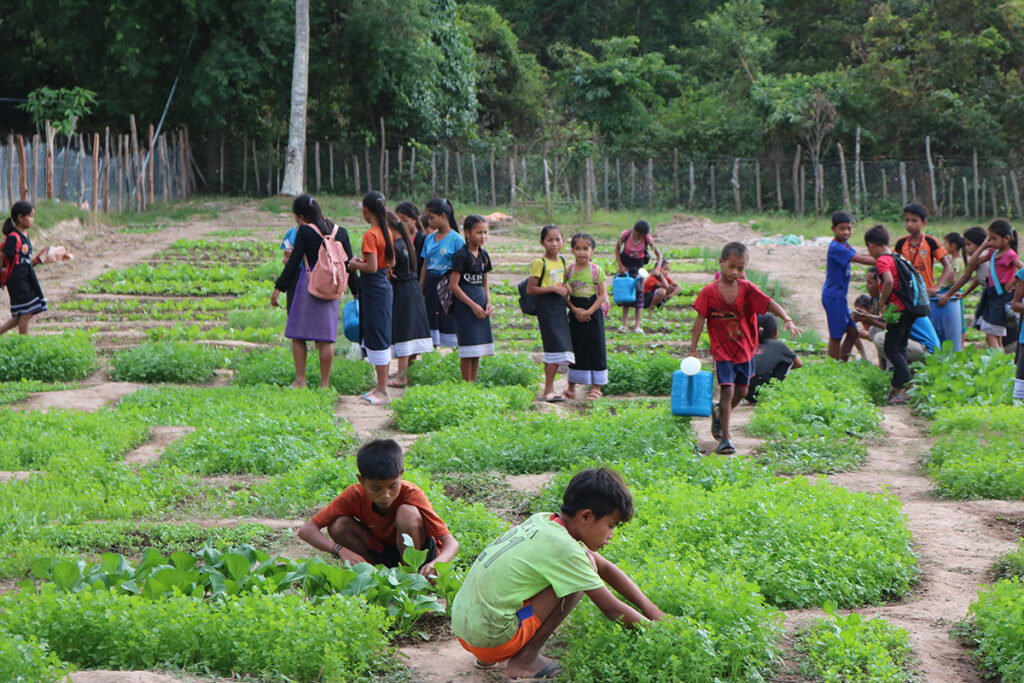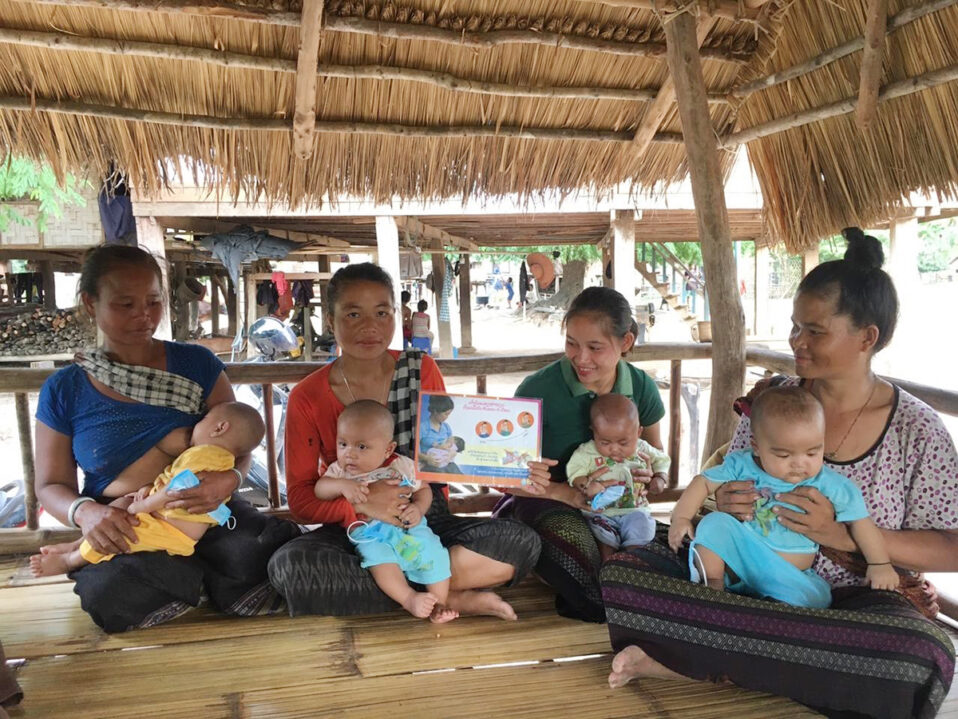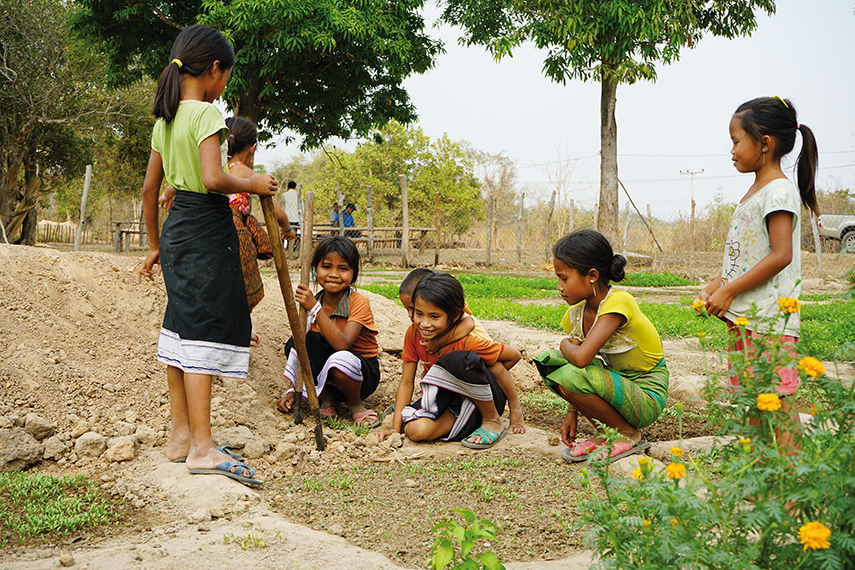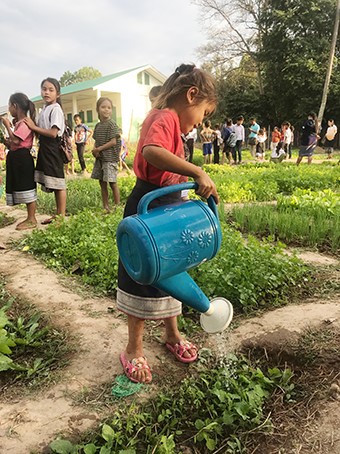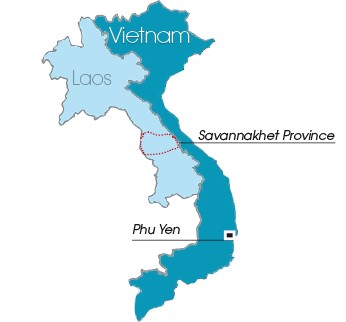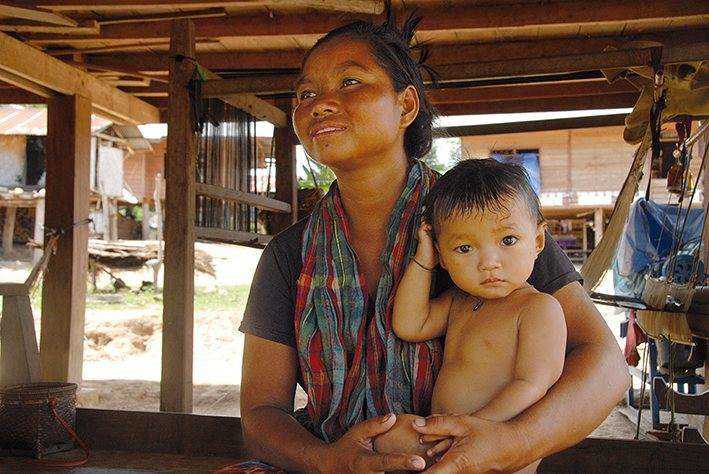Background
Improvement on nutrition and food security continues to be MCNV’s work priorities in Laos and especially in the areas where more ethnic minority groups are living. Nutrition and food security are closely interlinked and requires multi-sectoral approach as per the 8th National Social Economic Development Plan by the Government of Lao PDR, which states: “Nutrition is one of the sectors that faces challenges in the implementation since it is associated with several sectors such as food security, food access and food consumption. To counter these, it requires effective collaboration and shared responsibilities among the concerned agencies including sector of health, education, agriculture, environment, industry and commerce, etc.[1]”.
MCNV’s response
In Lao PDR, MCNV has recently started CANTEEN programe (Collaboration And Networking To Enhance Education and Nutrition). This is a 4.5 year-program (between Jan 2017 – June 2021), which is funded with 75% budget contribution by the EU delegation to strengthen the capacity of Civil Society Organisations (CSOs) and Local Authorities (LAs) to work in partnership towards the achievement of development goals. The programme has two specific objectives as follows:
- To build the capabilities of at least 6 LAs, 1 non-profit association (NPA) and 20 village development committees (VDCs) to work together to deliver nutrition sensitive services that improve food security, nutrition, and overall well-being of more than 6,000 poor ethnic minority people in 20 remote upland villages in Nong District, Savannakhet province.
- To strengthen capacity in policy dialogue and promote participation, transparency and accountability in multi-sector partnerships to encourage the uptake of successful models and to increase involvement of CSOs in development processes.
CANTEEN works closely with CODA (a Lao NPA – non for profit association) and Provincial Health Department of Savannakhet province to promote collective and coordinative working among different local authority organisations and community based organization in Nong district to work together for improvement in nutrition and food security at village and district levels. The experience and lesson learnt from such multisectoral coordination will contribute to and be shared with other stakeholders at provincial and national levels who are working together to improve the situation of nutrition and food security in Lao PDR.
Expected results
During its 4.5 years implementation, CANTEEN program will support a range of activities in order to achieve the following expected results:
Expected result 1.1: Strengthened capacities of the participating LAs, CSOs and CBOs to deliver relevant, effective nutrition services to marginalised and vulnerable people, in particular women and children: This focuses on strengthening capacities of participating CSO and LA organisations and their staffs and members. The specific paths for capacity-building will be designed based on analysis of current gaps and future needs of each participating organisation. For the 20 participating Village Development Committees (CBOs) the Action will use a small-grant support scheme to help them improve their skills by practicing a full cycle of small experimental projects.
Expected result 1.2: Reduced malnutrition and food insecurity in target villages through adoption of convergent approaches that include key stakeholders in health, agricultural and education sectors: This is designed specifically to demonstrate effectiveness of the convergent approach in reducing the incidences of malnutrition and food insecurity in the selected villages. This emphasises the importance of working together to achieve a common goal. All sectoral interventions (i.e. educational, agricultural or health) are designed for nutrition sensitivity and are aimed at generating evidence on how to contribute to reduction of food insecurity and malnutrition. The proposed interventions under this refer to 14 of the 22 priority actions identified in the recently published National Nutrition Strategy to 2025 and Plan of Action 2016- 2020, designed to reduce malnutrition rapidly and sustainably with an emphasis on gender equality and the rights of women and girls.
Expected result 2.1: Increased effectiveness of institutional environment for CSOs and LA, with stronger networks that have better capacity to advocate for sustainable approaches using evidence arising from the action. This will show the up-scaled and sustainable interventions in Nong District, using evidence-based advocacy to argue for their replication, adaptation and adoption in other areas of Lao PDR. It will strengthen links with civil society networks such as the Scaling Up Nutrition (SUN)-Alliance. This adds value to GoL’s plans, as it currently is expanding the rollout of convergent approaches to other provinces, including Savannakhet, and will be seeking evidence and support for effective implementation and expansion.
[1] The Five Year National Social Economic Development Plan VIII – 2016 – 2020: part I: 7th NSEDP 2011-2015: achievement and lessons learned. Lao PDR.
